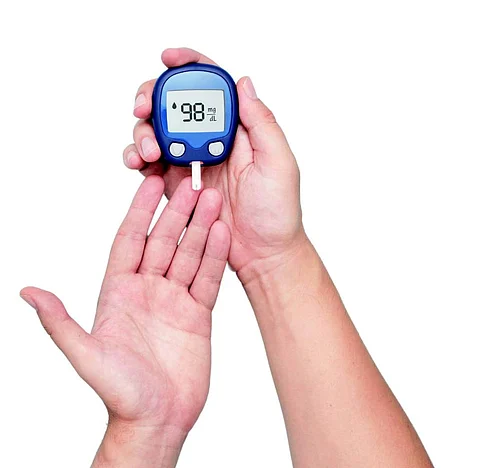

Diabetes mellitus, often known simply as diabetes, is a group of common endocrine diseases characterized by sustained high blood sugar levels. Diabetes is due to either the pancreas not producing enough insulin, or the cells of the body becoming unresponsive to the hormone's effects. Classic symptoms include thirst, polyuria, weight loss, and blurred vision. If left untreated, the disease can lead to various health complications, including disorders of the cardiovascular system, eye, kidney and nerves. And now for the shocking bit. 24.6 percent of Goans suffer from diabetes with 20.3 percent are prediabetic.
The lifestyle does not help matters. Dr Lenny da Costa, consultant geriatrician, preventive cardiologist and anti-aging specialist and the author of a book on diabetes said the situation was very bad. He said, “We have young adults between 30-40 years now getting it. We did blood testing in the south of around 500 people and more than 250 were found to be newly diagnosed cases. Everytime we do these tests, we get around 45-50 percent cases as newly diagnosed. We conduct these tests in public places around Margao, like at the garden. The kind of food we consume and the lifestyle we lead with the food that is so rich in carbs, we are not meant to do that. This body is meant for hunter gatherers. Our body is meant for fasting not feasting. We indulge in too much wheat and rice. We should eat a lot of vegetables, lean meat, fish and good fats”.
He strongly advised the consumption of virgin coconut oil instead of refined oil which is causing havoc with our systems. He then highlighted the importance of a good night's sleep. He said, “People these days tend to sleep at 1, 2, 3 am at night and then wake up at 10 o'clock. We have to get to bed by 10.30 pm but we are in front of our blue screens. A good night's sleep will reduce the chances of diabetes. Then it is also important to do some exercise. A good 20 minutes everyday will do wonders. You can delay the onset of diabetes, heart diseases by 10-15 years. A simple blood test will tell us all that. We can warn you. It is also important to reduce stress levels. It is easy to cut stress. India has wonderful opportunities to fight stress like yoga. We have these options but we don’t use them”
Dr Lenny advised that instead of using bread, one could eat millets. Vegetables he said were great for people. There was no need to consume carbs, one could eat a bit perhaps once or twice a week. He said it was important to stay away from wheat and it was safer to eat rice.
Another doctor was Dr Vaibhav Dukle, an endocrinologist, who emphasized the importance of eating a balanced diet. He said, “It is important to consume less carbohydrates and one should consume more proteins. Direct sugars should be avoided. Stay away from soda, sweet drinks, sweets, and pastries, which should be avoided. A patient on insulin should not miss meals and should eat at the same time. It is important to make a personal plan and stick with it.”
Speaking about the situation in Goa, it was not possible to think of a diet without rice. It has to be worked out. It was important to stick to a stable diet and not try anything exotic. Portions he said had to be smaller and sweet potatoes had to be avoided. Sugar substitutes were safe but had to be used in rational doses. All vegetables were good and once could even eat five servings per day.
The problem of diabetes is seen everyday by Dr Tejas Kamat, a diabetologist who is based in Panjim. He said a recent study highlighted the fact that diabetes was the highest in the country with 26 percent suffering in Goa. He said it was a lifestyle disorder and with the stresses associated with the hospitality industry made it a serious problem. The absence of sleep did not help. He said, “Our diet has not changed much from our forefathers but what has changed is the lifestyle. Our ancestors would eat and live a physically active lifestyle. We don’t have such an active lifestyle. We also have erratic sleep patterns”.
The problem he said was getting worse across India. Goa he said was number one. Young people he said as young as 15-20 were now reporting cases of diabetes type 2. It was a worrying trend. If the parents had diabetes with a lack of physical activity and obesity then their children he said had to be careful.
He advised an eating style which was full of common sense. He said it was ok to eat everything but it all depended on how much you ate. Eating 3 or 4 chapatis with a heavy portion of rice was not safe. Small portions coupled with physical activity stretching over half an hour was very important.
It remains to be seen how the people of Goa react to these damning statistics and do something about it. Otherwise, the future looks grim.